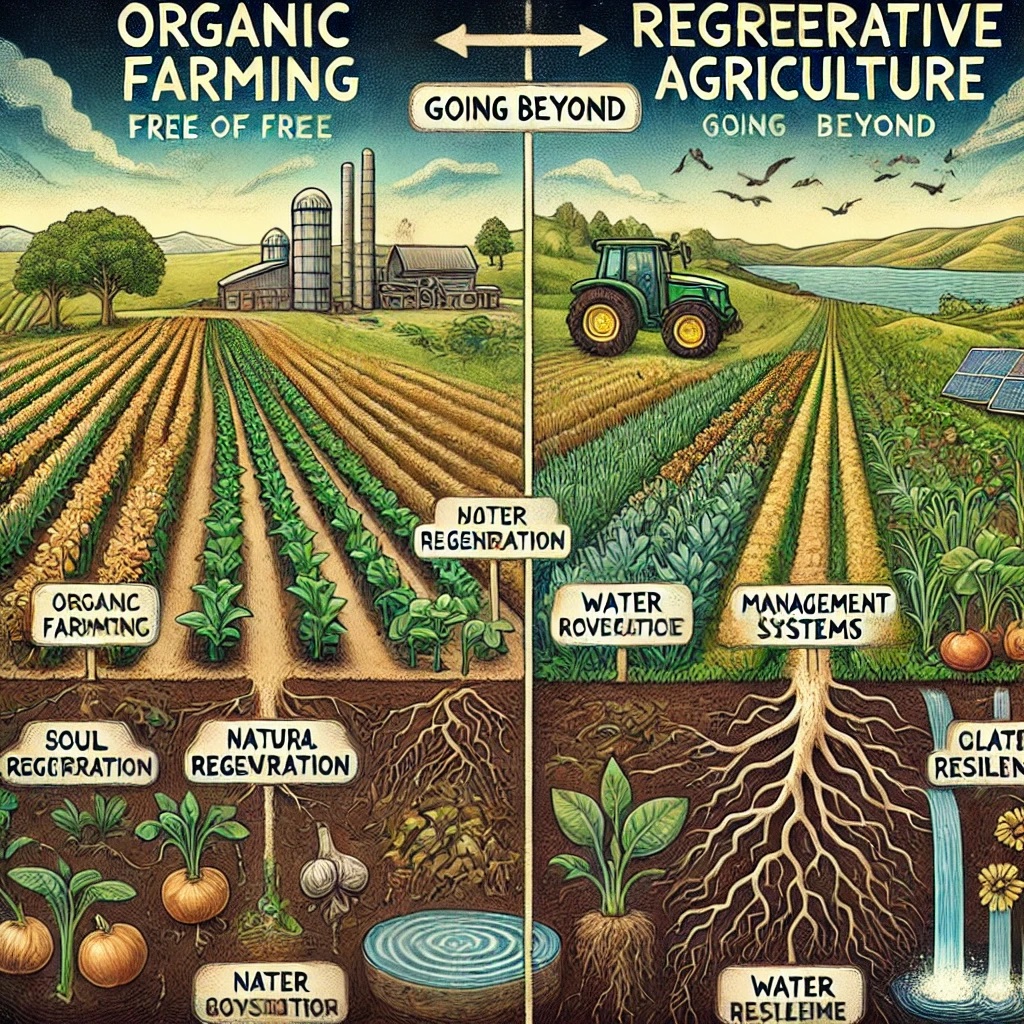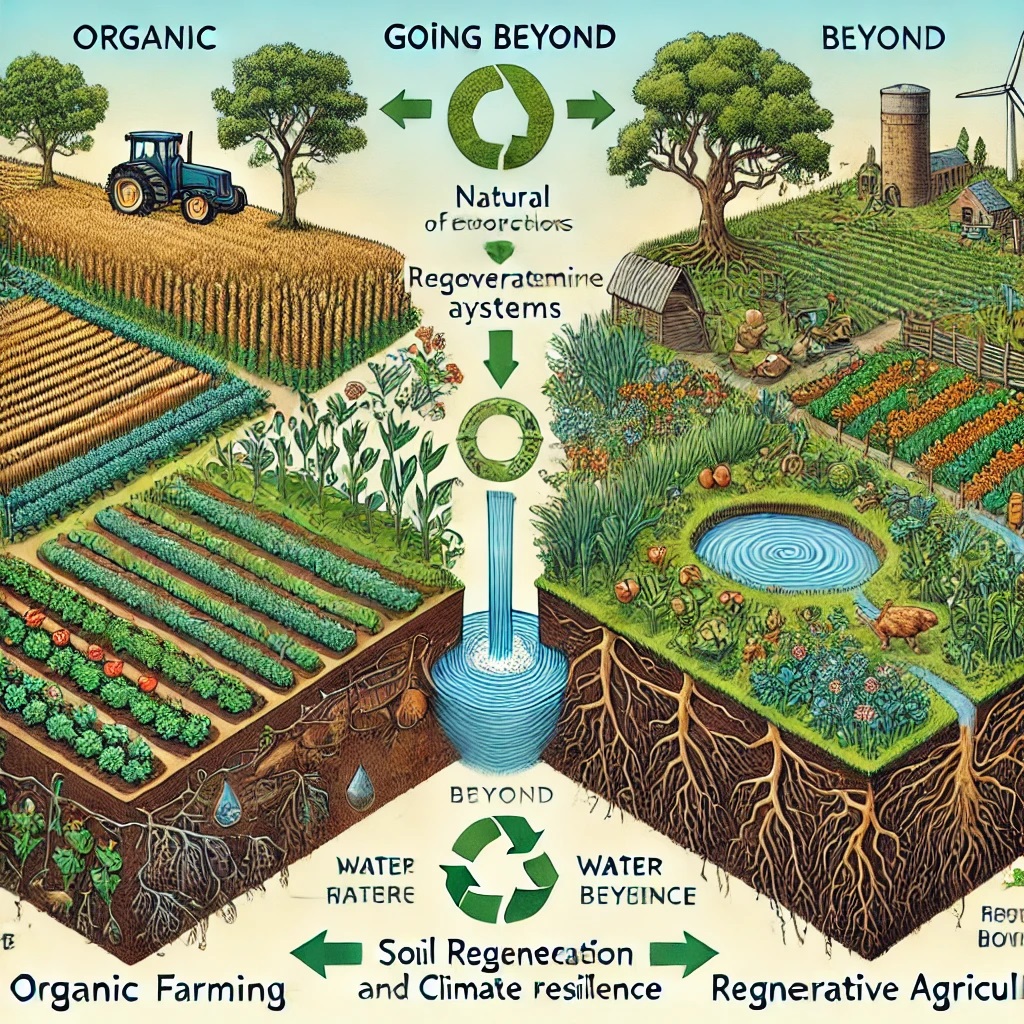Environmental Impact
-

Rebuilding Soil Health: The Science Behind Regenerative Agriculture and Carbon Sequestration
Read more: Rebuilding Soil Health: The Science Behind Regenerative Agriculture and Carbon SequestrationSoil health is at the core of regenerative agriculture, offering significant environmental benefits, including carbon sequestration. This article delves into the science behind how regenerative practices—such as cover cropping, crop rotation, and reduced tillage—enhance soil organic matter. As soil health improves, it becomes a powerful tool for capturing and storing atmospheric carbon, mitigating climate change…
-

Beyond Organic: How Regenerative Agriculture Goes a Step Further for the Planet
Read more: Beyond Organic: How Regenerative Agriculture Goes a Step Further for the PlanetWhile organic farming has been popular for its environmental benefits, regenerative agriculture takes sustainability to the next level. Unlike organic methods, which often focus solely on eliminating synthetic inputs, regenerative practices emphasize rebuilding entire ecosystems. This article compares both approaches, highlighting how regenerative agriculture promotes soil regeneration, water conservation, and climate resilience. By going beyond…
